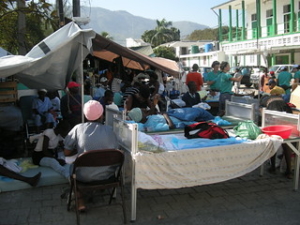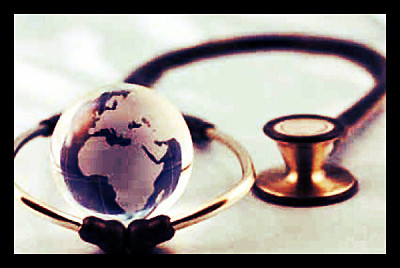
Consider the public health benefits of having the ability to use an electronic device the size of a mobile phone to diagnose diseases usually requiring expensive lab equipment and logistical support. Well thanks to a group of innovative scientists operating in a remote area of Tanzania, the iPhone microscope could usher in the future of a technologically driven global health policy.
Using nothing more than an iPhone, a flashlight, tape, and a camera lens; scientists were able to use their iPhone microscope to detect parasitic worms in a group of 200 students located on the Tanzanian island of Pemba. Isaac Bogoch, a Toronto-based physician remarked, “To our knowledge, this is the first time the mobile phone microscope had been used in the field to diagnose intestinal parasitic infections.”
Parasitic worms – clinically regarded as Helminth infections – affect nearly 1.5 billion people, according to the World Health Organization (WHO). By utilizing the iPhone microscope, health care workers will be able to analyze samples quickly and in close proximity to the patient, allowing for immediate parasitic identification and treatment. Thus far, the iPhone microscope diagnoses have been 70 percent accurate, and with greater zoom capabilities and higher resolution, is expected to improve in the near future.
The potential benefits of the iPhone microscope in alleviating global health outbreaks is promising due to its portability and ergonomic efficiency. By utilizing readily available technology such as the iPhone microscope to combat disease, aid workers have found an indispensable ally in the mobile phone market.
– Brian Turner
Source: CNN

 Just in the last ten years in Rwanda, deaths from HIV, TB, and malaria have dropped by 80 percent, annual child deaths have fallen by 63 percent, maternal mortality has dropped by 60 percent, and life expectancy has doubled. All at an average annual healthcare cost of $55 per person.
Just in the last ten years in Rwanda, deaths from HIV, TB, and malaria have dropped by 80 percent, annual child deaths have fallen by 63 percent, maternal mortality has dropped by 60 percent, and life expectancy has doubled. All at an average annual healthcare cost of $55 per person.

